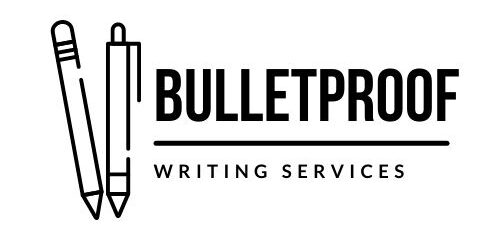If you have a book deal with a traditional publisher, chances are you don’t need to hire your own copyeditor. Once your manuscript is accepted, the publisher takes care of the copyediting stage before your book is printed. But as self-publishing options continue to gain popularity, so does the need for copyeditors. Why do you need one?
We’ll cover that and more, but first, let’s look at where copyediting fits in the publishing timeline.

Publishing Steps
Developmental Editing
Some publishers also refer to this stage as the manuscript critique. An editor reviews your manuscript and creates an overall assessment of the work. You may receive feedback suggesting changes to the structure or content to strengthen the text or characters.
Line Editing
This second stage is also known as a comprehensive edit. It’s in-depth and very thorough as an editor combs through your manuscript line by line. Your editor will condense sections or remove words to tighten the text and improve the flow of the story.
Copyediting
Copyediting or mechanical editing focuses on accuracy and consistency throughout your document. This includes grammar, spelling, and punctuation use but also formatting and story details. Copyeditors look at the small details and the big picture to make sure your manuscript is telling the best story possible.
Consistency
You don’t want your readers distracted by inconsistencies in your story. If your main character lives in a cream stucco house in the first chapter, chapter four shouldn’t describe her home as a red brick house. If she has long blond hair in one paragraph, it shouldn’t suddenly change to dark brown in the next. Has a particular landmark moved from one side of the city to the other during the story? Checking for continuity is a big part of a copyeditor’s job.
But physical details are only part of what copyeditors look for. We check for technical consistency as well. Did you switch between the American and British spellings of a certain word? Did you vary between email and e-mail? Are your key terms and abbreviations used consistently and correctly? Did you use different fonts for no apparent reason?
What about your punctuation choices? If you use the Oxford comma in the first five chapters, but not in the rest of the book, your copyeditor will fix that. When your manuscript varies from your chosen style guide, your copyeditor will note and correct the variances.
Fact-Checking
If your manuscript is nonfiction, your copyeditor may also check for factual errors. Are your names and dates correct in your memoirs? Fact-checking is a large part of the publishing process. Sometimes it’s such a big undertaking that it is split out to its own role. Factual errors can embarrass you or, worse, land you in legal trouble. It’s important to confirm with your copyeditor whether fact-checking is included in the contract. Some copyeditors will only check proper nouns and general facts. Then if they think something needs verification, they will leave notes in the text about facts that are beyond the scope of their contract. The ACES: Editors for Hire directory is a good place to look if you need help with fact-checking specifically.
A copyeditor’s main concern is consistency. If you don’t remember anything else about copyediting, remember that.
Proofreading
As you know from my proofreading articles, proofing is the last step in the process before publication. Proofreaders are the last sets of eyes checking for any remaining errors before your manuscript is printed. The key difference between copyediting and proofreading is how much the text can be altered. A copyeditor may suggest a change to your content, but a proofreader will only look for errors.
Copyeditors Are an Investment
Although traditional publishing includes copyediting as a required part of the process, many self-publishers skip this step. That’s a very risky move. You may be familiar with the idea of typo blindness. Nick Stockton wrote an article about it for Wired, but the gist of it is that writers are unable to catch their own mistakes because they already know what they’re trying to say.
Publishers require copyediting because they don’t want to print thousands of copies of a book only to discover there is a typo in the first chapter and a character discrepancy halfway through. It’s annoying for readers and reflects poorly on the publisher. Self-publishers who skip the copyediting process open themselves up to the same issue. Inconsistencies can confuse readers and embarrass you as a writer. Protect your work by hiring a professional copyeditor. It’s an investment that pays off.
If you have completed your developmental and line edits and are ready for copyediting, I’d love to partner with you to make your writing bulletproof! Contact me today to receive a personalized quote for your writing project.
